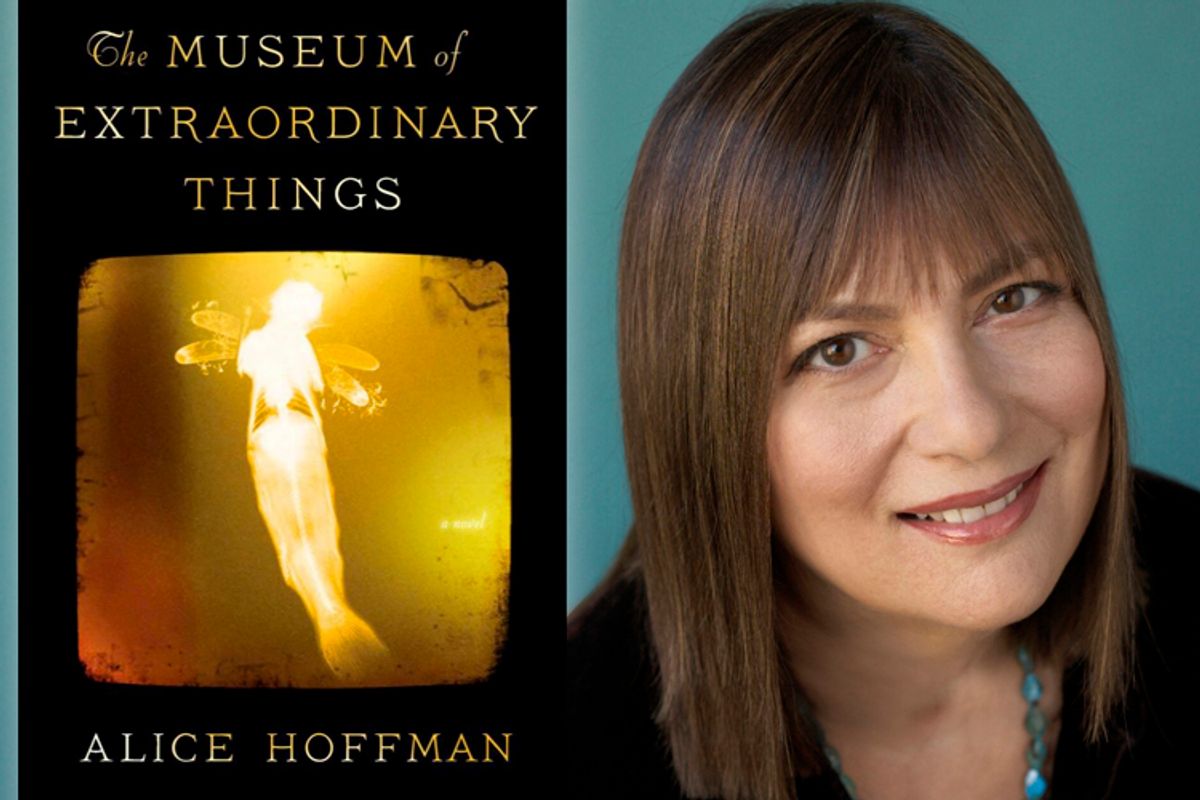1. Start with an image, perhaps a full moon, or a girl wearing a hooded sweat shirt running across the parkway, or two deer on the grass, startled by a sudden movement. It can be something you saw or something you dreamed. You passed by someone in the street crying. Her hair was braided and her eyes were rimmed red. You dreamed you held a bowl of strawberries and each one contained a secret, a story of its own.
2. Write lists. Start with random words, choosing the ones you love like oleander and aquamarine. Go on those that cause pinpricks of fear to rise on your skin: sorrow, graveyard, raven, slash. Write down the names of everything you'd like to find in a garden: roses, mint, rosemary, lemon verbena. List the cities you've always wanted to visit or the ones where you'd lived. Include street names, shops you spied when you drove through a town in New Jersey, alleyways in Boston. List the places you've longed for in your darkest hours: white beaches, a cafe in Paris next to Shakespeare and Company. Don't forget names. People often become what they'd been named: Jack Runner who can never commit. Mrs. Hardwick, the teacher everyone fears. List the names of literary heroines who had simple names like Cathy and Jane. Write down who you wish you'd been, the girl next door, a queen during the Bronze age, a baby being born today.
3. Recall a memory. You mother calling you into the living room to tell you that your father was leaving. Your grandmother fixing a pot of tea that smelled like blueberries. The boy next door climbing over a fence in the middle of the night. The time you heard someone on the roof and closed your eyes and wished him away and when you woke up he was gone. Change whatever happened next, move it into another town or another time, reverse it. Then start all over again.
4. Write a first line. "Once upon a time" or "In a far off land" are always good. Have a character arrive in a new town, fall in love at first sight, open a door. You'll be amazed to discover what's on the other side and what's around the corner. You'll never guess who falls in love with who. You have an outline, you think you know the end of the story, but the plot will begin to take a curve. Pull something out of your dreams. Take a line of conversation you once heard in a coffee shop. What did your brother say to you last week? What was the story your sister used to tell you? What fairy tale do you carry around inside of you?
5. Now sit down and start writing. In your story there may be a girl in a red-hooded sweat shirt climbing over a fence, stumbling past two deer as she leaves your grandmother's house. She looks like you, but look again. You're writing fiction. She's someone brand-new.

Shares